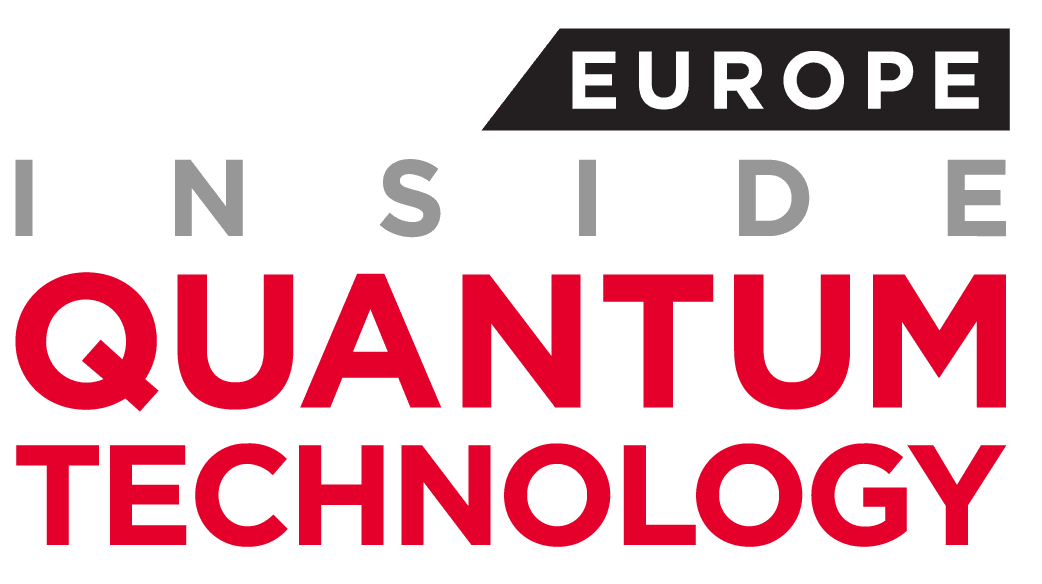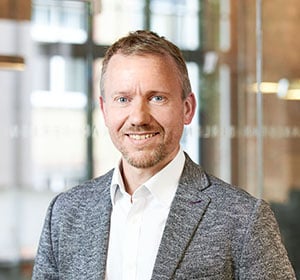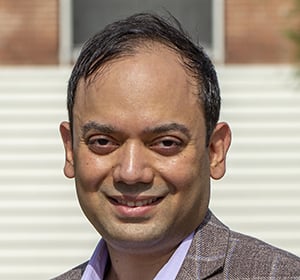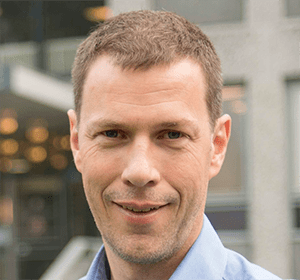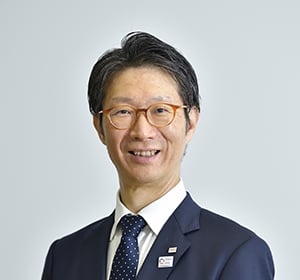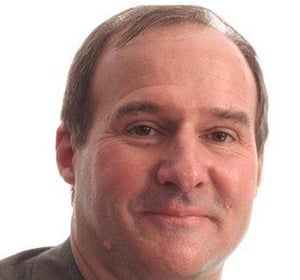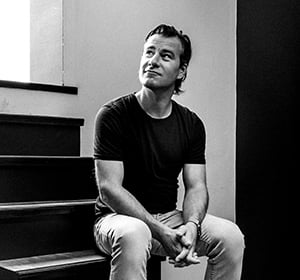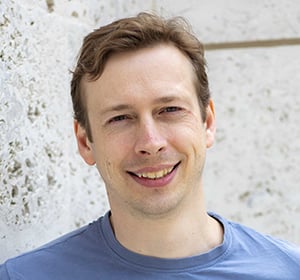Ravi Pillarisetty is working on leveraging Intel’s expertise in transistor manufacturing towards building a commercial quantum computing system. He joined Intel in 2005 and has worked on a variety of research topics across the transistor and memory landscape. This included serving as the device lead on the team that created the 22nm node prototype FinFet transistor. For this work, he received an Intel Achievement Award, which is the company’s highest honor. Additionally, he has been involved in research on several non-silicon channel materials, including having led Intel’s germanium transistor research program. He is extensively involved in Intel’s external research activities having served as co-chair of Intel’s Corporate Research Council, which manages all of Intel’s external university investments spanning the entire compute stack. Additionally, he serves as Intel’s Scientific Advisory Board representative for the NRI and N-CORE SRC research consortia. An avid inventor, he has been granted over 245 patents related to semiconductor technology and has been recognized as the recipient of Intel’s Technology and Manufacturing Group Inventor of the Year Award. He completed his Ph.D. from Princeton University in 2005, where his thesis focused on low-temperature electron physics and his ScB from Brown University in 1999.
Archives: Speakers
Stephen
Stephen is an experienced technologist and engineer with a passion for setting strategy, introducing technology innovation, and building high-performing teams for ambitious global businesses.
Stephen advises the investment team on new opportunities, performs technology due diligence, as well as sources investments in the Deep Tech space, where he has also led transactions in AI/ML, B2B SaaS, and Data Analytics companies. He advises portfolio companies on product and technology-related matters as well as setting Lakestar’s internal technology strategy.
Prior to Lakestar, Stephen worked at Goldman Sachs for 20 years in various global offices. There, he was a managing director, led complex global engineering and change groups, and served as Chief Technology Officer in a number of global services.
He is an external speaker on technology and investment trends at universities and conferences such as NOAH, UK Parliament & Internet, Global Tech Advocates, FIMA, and AISummit. He also mentors tech-focused disruptive start-ups. He graduated with a BSc in Computer Science from Southampton University
Saikat
Saikat Guha is an Associate Professor at the University of Arizona, James C. Wyant College of Optical Sciences, starting July 2017, and the director of the NSF Center for Quantum Networks (CQN). Saikat received his Bachelor of Technology degree in Electrical Engineering from Indian Institute of Technology, Kanpur in 1998, and his S.M. and Ph.D. degrees in Electrical Engineering and Computer Science from Massachusetts Institute of Technology in 2004 and 2008, respectively. From 2008 to 2017, he worked for Raytheon BBN Technologies, where in his most recent role as Lead Scientist, he led various sponsored projects funded by DARPA, ONR, NSF, DoE, and ARL, in topics surrounding quantum enhanced photonic information processing. He was one of the founding members of the Quantum Information Processing group at BBN, formed in 2009.
Saikat’s research interests are in the quantum limits of optical communications and quantum-secured communications (rate) and optical sensing (resolution)—both in the evaluations of these fundamental limits using tools from quantum information and estimation theory, as well as in the associated circuit synthesis problem, that of trying to piece together familiar classical and non-classical optical building blocks to realize transmitters and receivers needed to attain those limits. He is interested in the design of quantum repeaters for long-distance entanglement distribution. He has also been lately interested in continuous variable photonic quantum computing, and quantum networks.
Saikat received the Raytheon 2011 Excellence in Engineering and Technology Award, Raytheon’s highest technical honor, for work his team did on the DARPA-funded Information in a Photon program. He was a co-recipient of an honorable mention in NSA’s 2016 Cybersecurity Best Paper Award for a paper on Quantum-Secure Covert Communication on Bosonic Channels, which he supervised. He was a recipient of Anita Jones Entrepreneurial Award 2013 from BBN Technologies, a co-recipient of a NASA Tech Brief Award for his work on Phase-conjugate receiver for Gaussian-state quantum illumination, and received the Raymie Stata Award for outstanding performance as Teaching Assistant for Signals and Systems, Fall 2005, from the Department of Electrical Engineering and Computer Science, MIT. Saikat was a member of India’s first team to the International Physics Olympiad at Reykjavik in 1998, where he received an Honorable Mention and the European Physical Society (EPS) Award for the experimental component. He is a Senior Member of the IEEE. Prof. Guha also has appointments with the Department of Electrical & Computer Engineering, and Program in Applied Mathematics at the University of Arizona. In 2020, Saikat and his team were awarded an NSF Engineering Research Center. The center focus is on Quantum Networks (CQN).
Lieven
Prof. Lieven Vandersypen is co-founder of QuTech, co-director of the Kavli Institute of Nanoscience and Antonie van Leeuwenhoek Professor at Delft University of Technology, the Netherlands. He received a PhD from Stanford University (2001) for the first implementation of quantum algorithms in the lab, using nuclear magnetic resonance. After moving to Delft, where he established his own group in 2003, he pioneered the control and read-out of single electron spins in semiconductor quantum dot arrays. Lieven Vandersypen is a recipient of the Nicholas Kurti European Science Prize (2008) and the IUPAP Young Scientist Prize for Semiconductor Physics (2008), was a member of the “The Young Academy” of the KNAW (2007-2012), and is a member of the Royal Holland Society of Sciences and Humanities (KHMW).
Taro
Taro Shimada joined Toshiba in October 2018 as Corporate Digital Business Chief Strategy Officer. In April 2019 he was appointed Chief Digital Officer, responsible for supporting Toshiba’s digital transformation and spearheading strategic business creation and promotion.
In carrying out these responsibilities, Mr. Shimada draws on a wealth of experience in hardware development, including aircraft; in process consultation ranging from automobiles to precision machinery design and heavy industry; and in product life cycle management software. An expert in Factory Automation, he has advised many of Japan’s leading global manufacturers on digitization, and is currently an advisor to the Robot Revolution & Industrial IoT Initiative, and to the IoT Acceleration Lab. He has also contributed to the activities of Industrie 4.0 in Germany and Connected Industries in Japan.
Mr. Shimada began his career in1990 at ShinMaywa Industries Kobe, where he worked on aircraft for Boeing and McDonnell Douglas. In 1999 he joined Structural Dynamics Research Corporation, a part of Siemens, and took on a series of progressively senior post at Siemens KK, and at Siemens HQ in Germany. Immediately prior to joining Toshiba, Mr. Shimada was Executive Operating Officer at Siemens K.K.
Mr. Shimada is a graduate of Konan University. His relaxes by playing the drums, and enjoys all genres of music.
Terrill
Terrill Frantz is the lead for the Next Generation Technologies / Quantum Information Science master-degree program at Harrisburg University of Science and Technology, where he is an Associate Professor of eBusiness and Cybersecurity. He has extensive classical-computer software experience reaching over 45 years of hands-on programming and management, mainly in the international financial services industry, and he has recently pivoted into Quantum Computing. He transitioned from industry to academics in 2002, which includes 8-years as a professor of management at Peking University, in Shenzhen China. He holds a Ph.D. from the School of Computer Science at Carnegie Mellon University, and an EdD in Organization Change from Pepperdine University.
David
David Awschalom is the Liew Family Professor and Deputy Director of the Pritzker School for Molecular Engineering at the University of Chicago, a Senior Scientist/Quantum Group Leader at Argonne National Laboratory, and Director of the Chicago Quantum Exchange. He is also the inaugural director of Q-NEXT, one of the new US Department of Energy Quantum Information Science Research Centers.
Before arriving in Chicago, he was the Director of the California NanoSystems Institute and Professor of Physics, Electrical and Computer Engineering at the University of California – Santa Barbara. He had served as a Research Staff member and Manager of the Nonequilibrium Physics Department at the IBM Watson Research Center in Yorktown Heights, New York. He works in the emerging fields of spintronics and quantum information engineering, where his students develop new methods to explore and control the quantum states of individual electrons, nuclei, and photons in the solid-state.
His research includes implementations of quantum information processing with potential applications in computing, imaging, and communication. Professor Awschalom received the American Physical Society Oliver E. Buckley Prize and Julius Edgar Lilienfeld Prize, the European Physical Society Europhysics Prize, the Materials Research Society David Turnbull Award and Outstanding Investigator Prize, the AAAS Newcomb Cleveland Prize, the International Magnetism Prize, and the Néel Medal from the International Union of Pure and Applied Physics, and an IBM Outstanding Innovation Award.
He is a member of the American Academy of Arts & Sciences, the National Academy of Sciences, the National Academy of Engineering, and the European Academy of Sciences.
Ton
Ton is the founder of PHX (thephx.co), a global community that connects the dots between the world’s most original thinkers, scientists, creatives and artists, top-tier investors, founders, and ultra-high net worths from Europe and the US, with a yearly gathering taking place on an island near Amsterdam (Check out his essay on Medium for a complete backdrop).
Next to that, he’s the Investor In Residence at Techleap.nl working closely together with HRH Prince Constantijn of Oranje.
Founder and former Partner at Deeptech venture firm 01Ventures.
Araceli
Dr. Araceli Venegas-Gomez, Founder and CEO of QURECA Ltd.
Dr. Araceli Venegas-Gomez spent several years working for Airbus in Germany and France as an aerospace engineer, before falling in love with quantum mechanics. She then decided to follow her passion for physics and moved to Scotland to pursue a Ph.D. in quantum simulation at the University of Strathclyde.
Following discussions with the different quantum stakeholders she had over the last years, Araceli identified the need to bridge the gap between businesses and academia, as well as to raise the quantum awareness to the general public. Continuing her work on outreach advocating quantum technologies, she was named the “quantum ambassador”, after winning the Optical Society Milton and Rosalind Chang Pivoting fellowship in 2019.
Araceli founded her own company called QURECA (Quantum Resources and Careers) to create a link between the different stakeholders in the quantum community through a common language, and to generate global opportunities with quantum technologies.
QURECA provides a range of professional services, business development, and the solution to the quantum workforce skills bottleneck: the first online platform for quantum training and resourcing, to support individuals and businesses to be part of the quantum revolution.
Toby
Toby Cubitt’s research straddles theoretical physics, mathematics, theoretical computer science, information theory, and much of Europe. He has published papers in the top-tier international journals and conferences across all four of these fields, including highly acclaimed publications in Nature, Science, and Proceedings of the National Academy of Sciences.
Toby holds undergraduate degrees from the University of Cambridge, and a Ph.D. from the Max Planck Institute for Quantum Optics in Munich. He is Reader (Associate Professor) in Quantum Information at UCL, and head of the Quantum group in the Department of Computer Science there. He holds a University Research Fellowship from the Royal Society, was awarded the 2017 AHP-Birkhauser Prize, and a Whitehead Prize by the London Mathematical Society in 2019 for “outstanding contributions to mathematical physics, in particular the interconnections between quantum information, computational complexity, and many-body physics.”
In 2018, Toby co-founded PhaseCraft together with Dr. Ashley Montanaro and Prof. John Morton: a quantum software startup focused on tackling the biggest challenge of developing practical applications of near-term quantum computers, from developing new underpinning mathematical techniques through to software implementations on real quantum hardware.
When he’s not pursuing research in mathematical physics or developing near-term applications of quantum computers, he can often be found designing science activities for 3-5 year-olds, helped by constructive criticism from his daughters.
